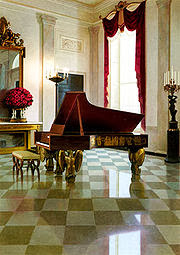In review--Atlantic Crossing
Quinto
World Village
The waves of the Atlantic ocean, lost loves, and family
nostalgia color the poetry of Portuguese fadisto Antonio Zambujo’s second World
Village release, Quinto. Certainly, you can hear the trembling, aching
fado voice here, but you can also hear strains of Brazilian bossa nova. I watched a few of Zambujo’s live
performances on YouTube where the artist collaborated with a Bulgarian women’s
choir, a duet with Raquel Tavares and a performance with a Portuguese
traditional men’s choir, Rancho de cantadores da Aldeia de S. Bento (who also
appear on What has become of her? on Quinto).
Clarinet, Portuguese guitar, ukulele (which finds its
origins in Portugal), classical guitar and double bass accompany Zambujo’s sexy
vocals. Flagrante sounds like it came out of Brazil’s Bahia region with its
lilting rhythms and spritely melody. José
Miguel Conde’s clarinet takes a Brazilian flavor too and only the shimmering
Portuguese guitar and ukulele (cavaquinho) remind us of the song’s Portuguese
origins. A Day is worth no more sounds like an American jazz standard or
even an Elvis Presley ballad sung in Portuguese. However, if you hunger for fado, then listen
to The Edge of Night, which recalls
old school fado, and the two opening tracks, Disconcerto Fado and The
Abandoned House.
I’m happy to include this new fado voice in my small
collection of fado CDs. Although I have
heard fado sung by men previously, this marks my first review of a fadisto
(fado singer). This could easily become
a habit, especially, if the men possess the velvety elegance of Antonio
Zambujo. He’s not just a fado singer,
but a musician with world music in his hands.
And with his versatility and willingness to explore global music
traditions, listeners expand their musical worldview too.




Comments
Post a Comment